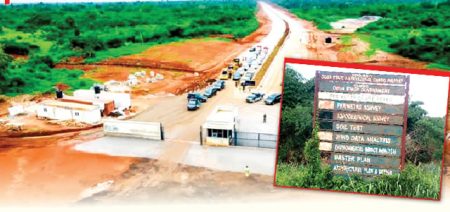The Nigeria Customs Service (NCS) has announced the development of an indigenous software called ‘B’odogwu’ to replace foreign technology that has persistently failed to facilitate seamless cargo clearance at the country’s ports. This initiative was prompted by numerous technical failures over several years that have significantly impacted revenue generation for Nigeria. During a recent assessment of this software project at the Ports & Terminal Multipurpose Limited in Tincan Island, Lagos, Comptroller-General Adewale Adeniyi expressed frustrations over the inefficiencies caused by foreign service providers. Importers and agents have frequently reported server downtimes, hampering the clearing process and leading to substantial financial losses due to demurrage.
Adeniyi underscored the repeated disappointments experienced with foreign software providers, who, despite extending their contracts, have consistently fallen short in fulfilling their obligations. The experience has shown that these foreign systems often fail when most needed, leading the NCS to abandon them, particularly the now-expired Nigeria Integrated Customs Information System. The decision to create an indigenous solution stems from the realization that the service could no longer wait for these providers to rectify ongoing issues. Instead, the focus is now on a home-grown solution that promises to be more reliable and efficient.
The ‘B’odogwu’ software is designed to enhance the efficiency of business processes within the NCS, offering customized integration capabilities for stakeholders. The intention is to improve the decision-making process and create a more conducive environment for conducting business. Moreover, the platform aims to incorporate advanced technologies such as artificial intelligence and mixed reality, which are becoming increasingly relevant in customs administration. This technological evolution aligns with NCS’s goals to maintain strong and resilient borders while adhering to legal and policy frameworks.
Furthermore, upgrades to the network infrastructure at PTML have been initiated to meet the evolving demands of modern trade and customs operations. Adeniyi stated that the new system would feature functionalities that account for the complexities in trade declarations evident in Nigeria today, along with tailored responses to these peculiarities. As part of its modernization efforts, the NCS is also introducing a verification platform that automates the registration process for agents seeking licenses and permits.
Acknowledging the transition’s potential challenges, Adeniyi reassured stakeholders that the NCS was prepared to handle any issues that might arise during the rollout of the new software. He emphasized the establishment of a dedicated technical support team to assist users in navigating the system. This proactive approach aims to minimize disruptions and ensure a smooth integration of the ‘B’odogwu’ software into current customs processes.
In summary, the development of ‘B’odogwu’ by the Nigeria Customs Service marks a significant step towards enhancing cargo clearance efficiencies at seaports, ultimately fostering improved trade facilitation. By leveraging indigenous technology and addressing challenges associated with previous foreign systems, the NCS aims to build a more resilient and effective customs administration capable of meeting modern demands and adapting to the dynamic nature of global trade.














